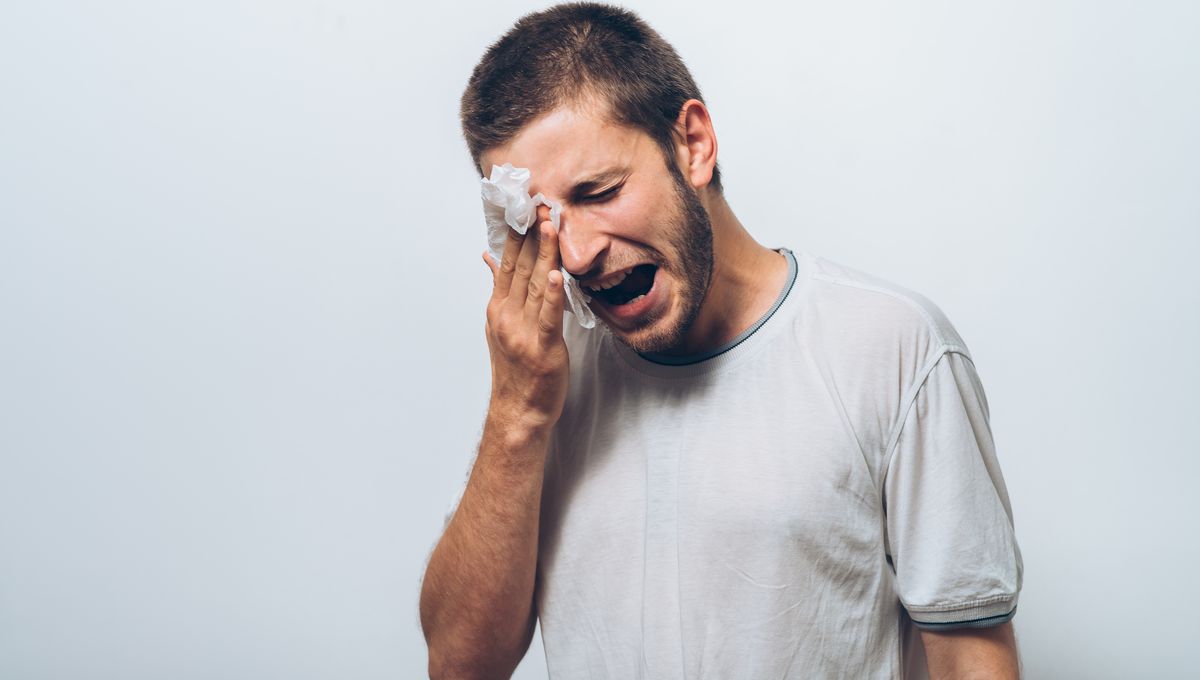
There’s a well-worn stereotype that women cry more often than men. It’s not a fantastically helpful stereotype, but it certainly is persistent. And, as it turns out, there could be a biological reason behind it: some research has suggested that higher levels of testosterone could inhibit crying.
Crying as a response to strong emotions appears to be a uniquely human thing. Even our closest animal companions, though they feel and express a range of emotions, don’t shed tears as their owners might at the merest glimpse of their tiny toe beans.
The reasons why we cry have been surprisingly difficult for scientists to pin down – one pair of study authors described it as a “riddle”. There have been a few theories put forward, such as the idea that emotional weeping is a form of non-verbal communication or a way of releasing emotional pain. Being able to cry also appears to be key to our ability to regulate our own emotions, as evidenced by research in people with medical conditions that prevent them from forming tears.
The fact remains that many ideas about crying that have taken root in our minds have done so without a convincing scientific basis. As research has begun to unpick the biological underpinnings of human crying behavior, something that’s come up time and again is that men really do seem to cry less frequently, on average, and for shorter durations than women.
A 2018 review summarized the research in this area up to that point, including a long-standing hypothesis that the female susceptibility to sobbing was caused by the hormone prolactin. The theory was largely based on research in ducks, and more recent research in humans had done little to provide evidence for it, although that’s not to say it isn’t worth investigating further. An alternative hypothesis, which the review authors describe as “somewhat more convincing,” suggested that rather than women’s hormones making them weepy, perhaps men’s increased testosterone was stopping them from crying.
As evidence for this, the authors point to work in animals on the impact of castration or testosterone treatment on “distress vocalization” – as we’ve established, animals don’t cry, so this is the best proxy we can use. Observations in humans do seem to back this up too. Men who receive anti-testosterone drugs as part of prostate cancer treatment, and transgender women who use hormonal treatments to reduce their testosterone levels, sometimes report an increase in crying.
Put simply, “Testosterone inhibits crying,” as senior author Ad Vingerhoets told Discover Magazine in 2022. “If the testosterone levels are reduced, then the person becomes more emotional.”
It might sound as though scientists have this question nailed, but like most topics in human biology and psychology, it’s unfortunately not that easy. We have a lot more to learn about why we weep when we’re sad. While the research seems to suggest that testosterone does have some inhibitory effect on crying, it’s hard to ignore the cultural and societal factors that have also likely led to the disparity between the sexes.
For example, one study found that men who are perceived to be more traditionally masculine, such as those who play competitive sport, may be judged less harshly for crying than those who exist in less stereotypically masculine spaces. The author concluded that “cultural expectations for masculinity continue to require men to express emotion in ways that clearly demarcate them from women and femininity.”
Even when men do cry, the negative connotations may lead to shame and embarrassment, as psychotherapist Mike Gropper’s account of a session with a traumatized war veteran for The Jerusalem Post illustrates.
With a growing emphasis on protecting the mental well-being of boys and men in light of the distressingly high suicide rates in this group, we may need to include a greater appreciation of biological factors that impact how men express their emotions, even as we seek to give them more space to do so.
If you or someone you know is struggling, help and support are available in the US at the National Suicide Prevention Lifeline on 1-800-273-8255. In the UK and Ireland, the Samaritans can be contacted on 116 123. International helplines can be found at SuicideStop.com.
Source Link: Does Testosterone Inhibit Crying?